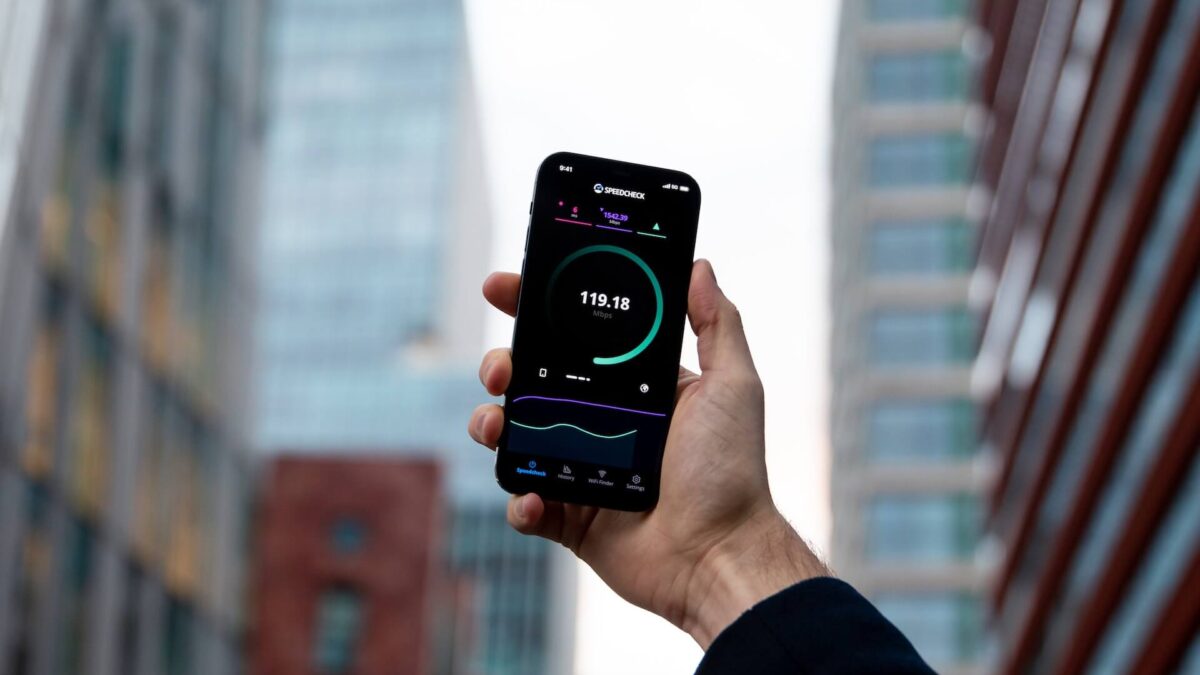How to Test Your Internet Speed and Improve Your Connection
As our lives become increasingly dependent on the internet, having a fast and reliable connection is essential. Slow internet speeds can be frustrating and can have a significant impact on productivity. In this article, we’ll explore the various methods you can use to test your internet speed and provide you with tips to improve your connection.
Understanding Internet Speeds
Before we dive into the methods for testing your internet speed, it’s essential to understand what internet speed is and how it works.
What is Internet Speed?
Internet speed refers to how fast data is transferred over the internet. Internet speeds are typically measured in megabits per second (Mbps) or gigabits per second (Gbps).
Download vs. Upload Speeds
Internet speed is made up of two components: download speed and upload speed. Download speed refers to how quickly data is transferred from the internet to your device, while upload speed refers to how quickly data is transferred from your device to the internet.
Factors Affecting Internet Speeds
Several factors can affect your internet speeds, including your internet service provider (ISP), the type of internet connection you have, the quality of your equipment, the number of devices on your network, and the distance between your device and the router.
How to Test Your Internet Speed
Now that we have a better understanding of what internet speed is and what factors can affect it let’s explore the different methods you can use to test your internet speed.
Method 1: Use an Online Speed Test Tool
One of the easiest ways to test your internet speed is to use an online speed test tool. These tools are typically free and provide you with a quick and straightforward way to check your internet speeds.
To use an online speed test tool, simply visit a website like Speedtest.net, click the “Go” button, and wait for the test to complete. The tool will measure your download and upload speeds and provide you with an overall speed score.
Method 2: Use Your ISP’s Speed Test Tool
Many internet service providers offer their own speed test tools that you can use to check your internet speeds. These tools are often more accurate than third-party speed test tools as they test your connection directly with your ISP’s servers.
To use your ISP’s speed test tool, simply visit their website and follow the instructions provided.
Method 3: Use a Mobile Speed Test App
If you’re testing your internet speeds on a mobile device, you can use a mobile speed test app. These apps work in a similar way to online speed test tools, but they’re specifically designed for mobile devices.
To use a mobile speed test app, simply download and install the app on your device and follow the instructions provided.
Tips to Improve Your Internet Connection
If you’ve tested your internet speed and found that it’s slower than expected, don’t worry. There are several things you can do to improve your connection.
Tip 1: Restart Your Router
One of the simplest things you can do to improve your connection is to restart your router. This can help to clear any temporary issues that may be affecting your internet speeds.
To restart your router, simply unplug it from the power source, wait for 30 seconds, and then plug it back in.
Tip 2: Move Your Router
The distance between your device and your router can also affect your internet speeds. If possible, try moving your router closer to your device or vice versa.
Tip 3: Use an Ethernet Cable
If you’re using a wireless connection, try using an Ethernet cable instead. Wired connections are generally faster and more reliable than wireless connections.
Tip 4: Upgrade Your Equipment
If you’re using outdated equipment, it may be time to upgrade. Older routers and modems may not be able to handle higher internet speeds, so upgrading to newer models can help to improve your connection.
Tip 5: Limit the Number of Connected Devices
The more devices you have connected to your network, the slower your internet speeds may be. Limit the number of devices connected to your network to improve your connection.
Tip 6: Update Your Software
Make sure that your device’s software is up to date. Outdated software can cause issues with your internet connection and slow down your speeds.
Tip 7: Contact Your ISP
If you’ve tried all of the above tips and are still experiencing slow internet speeds, it may be time to contact your ISP. They can help to identify and fix any issues with your connection.
Conclusion
In today’s digital age, having a fast and reliable internet connection is crucial. Testing your internet speed can help you identify any issues and make the necessary improvements to improve your connection. By following the tips provided in this article, you can enjoy a faster and more reliable internet connection.
Recent Posts
- Which TEM Provides the Best Service? Telecom Expense Management Support Report
- The Smart Way to Design a Global Network For Your Business—15 Easy Steps
- What is a Wayleave and How Can it Impact Your Circuit Installation Timelines?
- What are the Keys to a SASE Network Design?
- What is a Cloud Center of Excellence (CCOE) in a FinOps practice?
Archives
- April 2024
- March 2024
- February 2024
- January 2024
- December 2023
- November 2023
- October 2023
- September 2023
- August 2023
- July 2023
- June 2023
- May 2023
- April 2023
- March 2023
- February 2023
- January 2023
- December 2022
- November 2022
- October 2022
- September 2022
- August 2022
- July 2022
- June 2022
- May 2022
- April 2022
- March 2022
- February 2022
- January 2022
- December 2021
- November 2021
- October 2021
- September 2021
- August 2021
- July 2021
- June 2021
- May 2021
- April 2021
- March 2021
- December 2020
- September 2020
- August 2020
- July 2020
- June 2020
Categories
- Uncategorized (1)
- Security Services (62)
- Cloud SaaS (45)
- Wide Area Network (278)
- Unified Communications (181)
- Client story (1)
- Inspiration (3)
- Tips & tricks (20)
- All (4)
- Clients (10)
- Design (3)
- News (240)
- Music (1)




